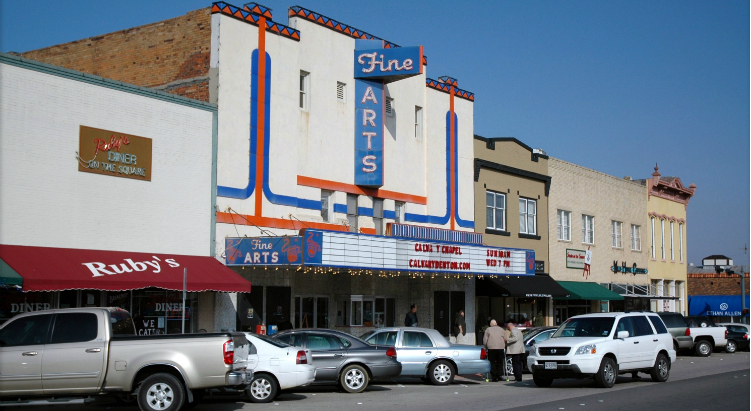It’s been an open secret since last summer that Star Communities was discussing some sort of move into the LEED umbrella. Then yesterday, on Greenbuild eve in Boston, Star and one of the organizations that administers LEED announced their intentions.
The Star Community Rating System isn’t quite merging with LEED — at least not right now. But Star Communities, the organization that runs the rating system, and Green Building Certification Inc. have agreed to a partnership to figure out how to work more closely in the near future.
“The goal is to integrate Star into LEED for Communities and Cities in the near term to advance sustainable cities worldwide,” according to a press release issued by the Star Communities and the U.S. Green Building Council.
Star is the leading municipal sustainable certification platform in the U.S. Nearly 70 cities, towns and counties have earned three, four or five star ratings under the program since 2012. Green Building Certification Inc. is a sister organization of the USGBC; it provides third party credentialing and certifications for the LEED family of rating systems, as well as for several certification platforms not owned by USGBC.
USGBC actually was one of the groups that helped to develop Star, beginning nearly a decade ago. The other founding partners were ICLEI-Local Governments for Sustainability USA, the National League of Cities and the Center for American Progress. But then, last year, USGBC unveiled its own program targeting a similar market: LEED for Cities and Communities.
I didn’t include either of these two programs in an article we published last week on sustainable community platforms because in a important way they’re different animals. The emphasis of that story was on programs that usually cater to non-government entities, such as neighborhoods, business districts, mixed-use developments and campuses. Star, and LEED for Cities and Communities target cities, towns and counties. Typically, local governments are the “owners” for projects seeking Star, LEED for Cities, or LEED for Communities Certification. But admittedly, there’s a gray area between the two programs and such community platforms as the Living Community Challenge and EcoDistricts, because the registrants for the latter programs occasionally are government entities.
Here’s the full text of the press release from USGBC and Star Communities:
Green Business Certification Inc. Partners with STAR Communities to Help Cities, Communities Reach Sustainability Goals
STAR to be integrated with LEED for Communities and Cities in the near term
Washington, D.C. – (November 7, 2017) – Green Business Certification Inc. (GBCI), the premier organization independently recognizing excellence in green business performance and practice globally, announced a new partnership with STAR Communities to address the needs of cities and communities around the world seeking a consistent framework for advancing sustainability.
Modeled after LEED, the world’s most widely used green building program, the STAR Community Rating System (STAR) was built by and for local governments and released as a pilot in 2012. Currently, there are nearly 70 communities across the U.S. certified through the program, including large cities like Houston, Texas, Phoenix, Ariz., and Columbus, Ohio; and smaller places like Northampton, Mass., Monroe County, Fla., and Dubuque, Iowa.
The goal is to integrate STAR into LEED for Communities and Cities in the near term to advance sustainable cities worldwide. LEED for Cities and LEED for Communities help communities and cities set goals, and implement sustainability strategies and plans to maintain and support these goals. The city or community then shares performance data to measure and track progress toward those goals.
“Local government leaders around the world have committed to pursuing strategies that have the ability to drive action and ensure a more sustainable future for us all,” said Mahesh Ramanujam, president and CEO, GBCI and U.S. Green Building Council (USGBC), the creators of LEED. “GBCI and STAR Communities are joining forces to deliver the most comprehensive program for cities and communities that will not only set them on a more sustainable path, but enable them to focus on and track performance and milestones.”
“Over the past five years, we have worked closely with local leaders and sustainability practitioners to deliver a framework and certification program that drives more effective, inclusive decision-making and results in more livable, resilient and just communities,” said Hilari Varnadore, executive director, STAR Communities. “The opportunity to work with GBCI and sister organizations USGBC and Arc will enable STAR to scale and serve as a catalyst and transformative tool toward more sustainable communities in the U.S. and beyond.”
In partnership, the organizations will endeavor to accelerate adoption of standards, strategies, and performance metrics that help foster market transformation and enhance environmental, economic and social outcomes across global cities and communities.
About Green Business Certification Inc. (GBCI)
GBCI is the premier organization independently recognizing excellence in green business industry performance and practice globally. Established in 2008, GBCI exclusively administers project certifications and professional credentials and certificates within the framework of the U.S. Green Building Council’s Leadership in Energy and Environmental Design (LEED) green building rating systems, as well as the PEER standard for power systems, the WELL building standard, the Sustainable SITES Initiative (SITES), Parksmart, EDGE (Excellence in Design for Greater Efficiencies), TRUE Zero Waste certification, Investor Confidence Project (ICP) for energy efficiency retrofits and the GRESB benchmark, which is used by institutional investors to improve the sustainability performance of the global property sector. www.gbci.org.
About STAR Communities
STAR Communities delivers national standards and strategies to advance sustainable communities. The organization administers the STAR Community Rating System (STAR), the nation’s leading framework and certification program for local sustainability. The concept for STAR emerged at Greenbuild in 2007. Founding partners, the U.S. Green Building Council, ICLEI-Local Governments for Sustainability, and the Center for American Progress launched the concept in Chicago and established a formal partnership in 2008 that included the National League of Cities. Version 1.0 of STAR was released in pilot in 2012. For more information, visit www.STARcommunities.org. Like us on Facebook and follow us on Twitter @STARCommunities.


